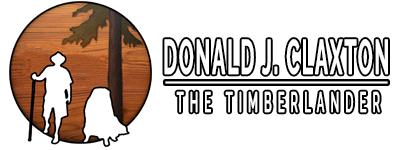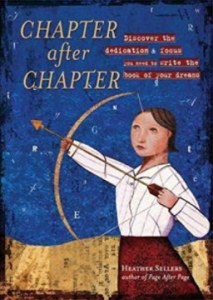War and Peace–A Profound Novel and Book Review, 2018
War and Peace by Leo Tolstoy–Add to my reading list and book reviews
My daughters gave me a copy of the 1,358-page version of Leo Tolstoy’s War and Peace for my birthday in early December. I began reading it on Dec. 7 and finished seventeen days later on Christmas Eve. (Note the previous link to Amazon is an affiliate link where if you make a purchase, I may receive minimal compensation at no additional cost to you.)
Considered the best novel ever written, I shall not ever disagree with this assessment. (You may find additional books to read on my Book List Page.)
War and Peace is the most profound book I have read
War and Peace is the most profound book I have read in dealing with the human condition and with Tolstoy’s discontent and outright contempt for the oversimplification of journalists and historians.
In fact, it was these parameters that he sought to overcome in writing this book. In his research and own experiences in battle, he saw that far too much was eliminated in the reporting and recording of journalism and history for them to be even close to accurate, so he set about to write this book, which he did not consider to be a novel–for it does not really have much of a beginning, middle or end–in an effort to tell the fullest story as possible about the Napoleonic wars.
The beauty in this book is in the depth of the writing, and yet the simplicity of it as well. As daunting as it may seem to pick up a 14-hundred-page book, it flows like water flowing from a stream or a tap in your kitchen. And while there are in fact about one hundred characters within the work, once you lock on to Pierre, Natasha, and Prince Andrey, all the rest of them essentially revolve around these three and then crisscross because these three are intertwined with each other. Pierre and Andrey are best friends.
Pierre has known Natasha since she was little. Andrey becomes engaged to Natasha, whom she in part knows through Pierre. Add in support characters around those three and you have the other hundred or so, including Napoleon and Russia’s Emperor Alexander I.
The beauty of War and Peace
There are descriptions of great battles from 1807-1812 in War and Peace. There are love stories. There are stories of hardship and strife. There are stories of death and suffering. There are explanations about how historians got things way wrong. There are glimpses into the spectacle of Russian high society and its aristocracy. There is even a duel for honor. All are explained and told with the simplicity noted above so one who is reading feels immersed in the scene and empathetic to the characters looming large.
My Similarities with Count Pierre Bezukhov
Pierre Bezukhov, the main protagonist of the work, and I seem to share several life experiences. Nasty marriages leave us in emotional and financial tatters not necessarily our own fault. We share a longing to help others no matter the cost or consequence to our own selves. And we also savor a quest for knowledge, to right our own wrongs, and to leave the world a better place.
Pierre is a trusting soul and gets abused for being one by many. The question one must experience is whether he will survive to the end and not finish in the state in which he began.
Last week I saw my pain doctor. I’m down 26 pounds now since October, largely due to meds, but I’m also trying. As I was leaving, he said when he was younger, after one of his first heartbreaks, someone told him that the most important thing in life isn’t money or property or anything of that like.
“The most important thing in life is your health,” he said. “If you have your health, all those other things can get taken care of.”
Ways Pierre changes throughout the story
That isn’t necessarily how Pierre lives his life, but as the war turns in 1812 and the French are retreating from Moscow, Pierre has epiphanies about life and living and he becomes a new man.
Two hundred years after the events of War and Peace, I am learning as well, after so many hardships, that the self-inflicted wounds and experiences, as well as those done by others, while they affect me in ways that may never cease, I have a choice. I can permit them to rule me, or I can take control, disavow them, and ensure they do not repeat themselves. For too long I abdicated power over me to others, either because they abused my vulnerabilities, maliciously acted, or I was too worn down to stop them. Even if those events now are memories.
No mas!
Get behind me, Satan!
There are still those out to get me, those who think they can ruin me. I think that boat sailed long ago. The only way for me to go at this point in life is up, so knock yourself out trying if you feel so low as to try. You’re wasting your time.
I have recommitted myself to God and living every day of the rest of my life working to his glory and toward living healthier.
Despite my continued back and leg pain, Crohn’s, and whatever else is going on inside me, I’m still fighting. Yes, I go to Medical City of Dallas nearly five days a week it seems for one doctor’s visit or another, but I am doing so to get myself well. To find the cures to what ails me.
Why do I read so many novels?
I read to enrich my mind.
I finished my goal of reading 101 fiction novels a few years ago.
Now it is time to start revising my own novel writing again. But only now is this a worthy effort, armed with more strength, more knowledge, and more skill.
Fear of Moving On; Fear of Moving Out
Since 2018-2019 when I invested so much study into Russian Literature and novel reading as well, my willpower toward overcoming the Fear of Moving On and the Fear of Moving Out has increased substantially. (Check out my post about this on Medium.com.)
It is time to take back the life that has been stolen from me by others for whatever reason, to give back what is owed, and to live out the remainder of my life on firmer footing and in the best health I can achieve.
Sure, others will continue to block my pathway.
My conclusion is this pattern is part of the human experience.
These days I find myself more equipped than I was several years ago; when so much of my world fell apart.
One of the greatest things I learned from Pierre in War and Peace is that while one is still living, there remains the chance to keep fighting for what is right, for what is best, and for the good of the world.
Such encouragement and objectives are what I intend to keep endeavoring toward.

